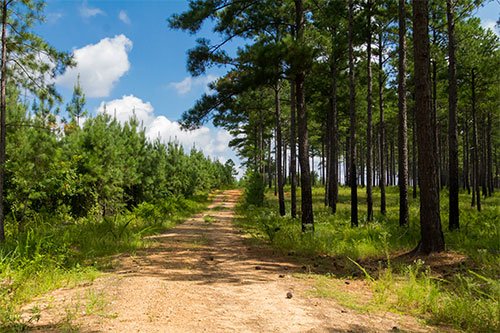Hunting Leases

Leasing recreational hunting rights can offer South Carolina landowners a wide variety of benefits without interfering with other land management objectives. The scarcity in availability of public hunting land is making hunting conditions on communal property crowded and hectic with limited access to wild game. Most hunters agree that private hunt leases offer a higher quality fair-chase hunting experience with fewer distractions and less interference from other hunters.
At Henderson & Associates, Inc., we can help you create a hunting lease as an integral component of the management of your property. Our land management experts will help you to establish, outline, and effectively communicate property rules and regulations in a comprehensive lease agreement that will protect your liabilities and interests. We will walk with you through every step of the process including marketing your property and negotiating with hunters, collecting and processing payments, and setting up a comprehensive hunter liability insurance policy.
Benefits of Hunting Leases
Hunting leases are an attractive addition to a timberland investment because they offer a variety of benefits. Not only do hunting leases offer an annual revenue stream, but they also give landowners the opportunity to share the enjoyment of their property with local hunters, control wildlife populations, and eliminate various liabilities associated with trespassing and poaching.
Types of Hunting Leases
There are several options to choose from when deciding on a hunting lease. The experts at Henderson & Associates can help you determine which type of hunting lease is best for you and your property. A hunting lease specifically outlines many stipulations for the recreational privilege, including the time frame of hunting opportunity, the allowable species of wild game to be harvested, and even the type of weaponry acceptable for use on the property.
Things to Consider When Creating a Hunting Lease
When creating a hunting lease, all expectations, rules and regulations must be clearly stated by the landowner to avoid potential misunderstandings or misuse of the property by the leasee. A comprehensive hunting lease should give a full description of the land or pieces of the land available for hunting, and should specifically outline what activities are allowed. Other things to consider should include:
- When the lease begins and ends
- Payment increments and due date
- What actions or inactions could cause early termination
- Types of hunting to be allowed (i.e. still hunting, dog drives, etc.)
- Allowable and disallowable alterations to the property (roads, limb-cutting, etc.)
- Types of hunting stands allowed (permanent vs. portable)
- Non-shooting zones
- Vehicle access & restrictions
Liability Insurance
Liability insurance is a crucial component to the hunt-lease process because it protects both the landowner’s liability and the leasee’s liability in the event of an accident. Liability insurance policies provide protection in the event of damages, injuries, or other occurrences that may happen during hunting activities. As a landowner, liability insurance can provide peace-of-mind when dealing with other people who lease rights to access your property. Adding a hunting lease agreement to your property can offer a wide range of benefits to the landowner who does not make use of the recreational opportunities on their property. Our team can help you create a hunting lease that will enable you to enjoy an annual revenue stream while also mitigating your liability and risk. Contact the professionals at Henderson & Associates today to see how they can help you maximize the potential of your timberland acreage with a hunting lease.




